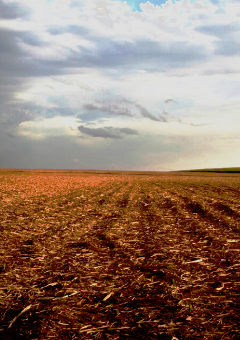Farm numbers knocked
 Climate change could undo decades of progress in agricultural productivity.
Climate change could undo decades of progress in agricultural productivity.
Despite major agricultural advancements to feed the world over the last 60 years, new research suggests global farming productivity is 21 per cent lower than it could have been without human-induced climate change.
“We find that climate change has basically wiped out about seven years of improvements in agricultural productivity over the past 60 years,” says economist Dr Ariel Ortiz-Bobea from Cornell University.
“It is equivalent to pressing the pause button on productivity growth back in 2013 and experiencing no improvements since then. Anthropogenic climate change is already slowing us down.”
The team of scientists and economists developed an all-encompassing model that links year-to-year changes in weather and productivity measures with output from the latest climate models to quantify the effect of climate change on what economists call “total factor productivity”; a measure of overall productivity of the agricultural sector.
The team considered more than 200 systematic variations of the econometric model, and the results remained largely consistent.
The experts say it is a sign that the world is already struggling under a changing climate.
“Most people perceive climate change as a distant problem,” Dr Ortiz-Bobea said.
“But this is something that is already having an effect. We have to address climate change now so that we can avoid further damage for future generations.”
Researcher David Lobell, professor of earth system science at Stanford University, says the direction of agricultural technology has not eased the issue.
“Even as agriculture becomes more mechanised and sophisticated, the sensitivity to weather does not go away,” he said.
“This is counter-intuitive for most people, and we need a deeper understanding of why.
“My sense is that we are just getting better at eliminating all the non-weather constraints on production, but we need to scrutinise various possible explanations.
“This study is a big leap beyond the traditional focus on a few major grain crops.
“By looking at the whole system – the animals, the workers, the specialty crops – we can see that the entire agricultural economy is quite sensitive to weather. It seems that in agriculture, practically everything gets harder when it’s hotter,” Dr Lobell said.








 Print
Print